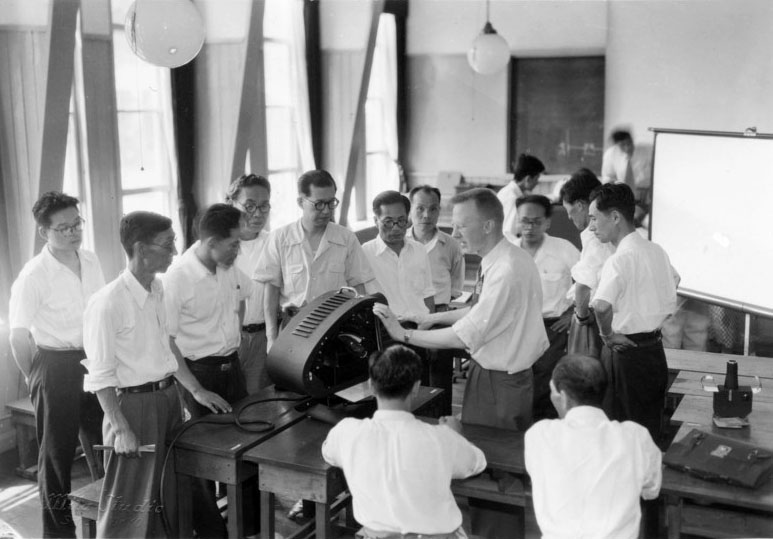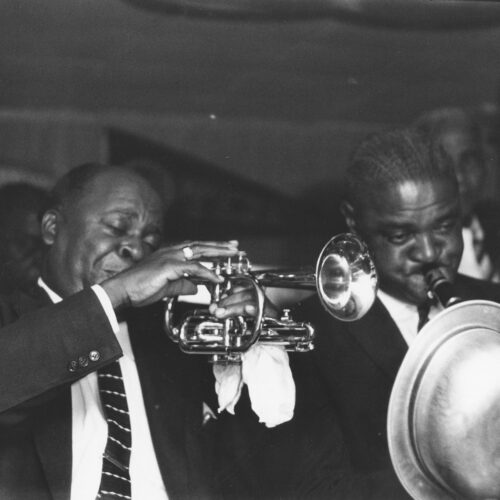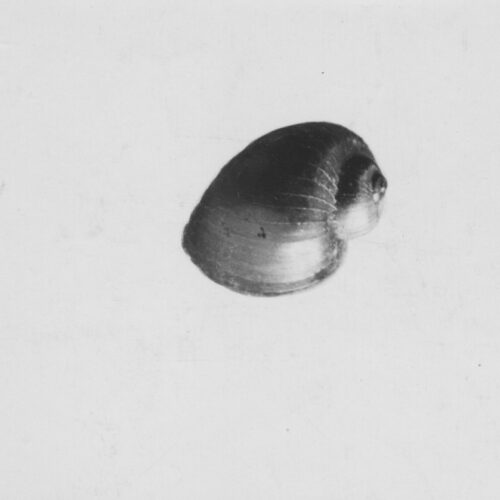At the end of World War I, the Rockefeller Foundation had helped to rebuild the cultural and academic life of Europe through institutional grants and individual fellowships. By the end of World War II, the problems of Europe were larger and the challenges of reconstruction more daunting. RF policy toward reconstruction during this period was shaped by uncertainty over Europe’s, and in particular Germany’s, future, a growing interest in the developing world and the rise of American power.
“Salvaging Brains”
In 1943 the RF began to execute its first plans for the post-war period. Within one year the RF had allocated over $500,000 for the training of medical personnel returning from the American armed services. Additional money was provided to the National Research Council (NRC) and the Social Science Research Council (SSRC) to provide fellowships to promising individuals whose graduate training was interrupted by the war. As described in the 1944 RF Annual Report, the purpose of these fellowships was
… [to] find the exceptional person whose failure to return to his chosen career will constitute a permanent loss in the generation ahead. It is the critical problem of salvaging brains.
Rockefeller Foundation Annual Report, 1944The Rockefeller Foundation, Annual Report 1944 (New York: The Rockefeller Foundation, 1944) 24. (Link to PDF on Rockefeller Foundation Website)
While these appropriations indicated a clear interest in developing American scholarship, continued RF support in former enemy countries was a more complex question. Foundation officers were profoundly disappointed that institutions they had supported in the past had fallen victim to totalitarianism and that science, some of it funded by the RF, had aided the fascist cause. The RF’s belief that progress was the inevitable result of increased knowledge had been severely challenged.
Development in Asia
The first RF post-war survey of Japan was conducted in 1947 by Charles B. Fahs. His report summarized the American occupation of the nation, both its successes and failures, and outlined a future for continuing RF work in the country. While Fahs noted that the American military forces were interested in short-term goals, he countered that true success would come from long-term aims that directed Japan toward democracy. Fahs recommended a program of “reorientation” for Japan, focusing on higher education and research, with a particular focus in the fields of library administration, philosophy and the social science. He placed a special importance on political science, writing,
In my opinion there is nothing The Rockefeller Foundation could do of more importance for the strengthening of democratic life in Japan than encouragement to the teaching and study of political activity…
Charles B. Fahs, 1948Comments on Japan and suggestions for Rockefeller Foundation policy there by Charles B. Fahs, January 26, 1948, Rockefeller Archive Center (RAC), RG 1.2, Series 600, Box 3, Folder 22.
While Fahs’ report recommended investment in Japan, he was also adamant that equal attention should be given to developing the rest of Asia. This idea clearly influenced the RF’s future interest in India and Southeast Asia.
The Question of Germany
In 1947 the RF also considered what role it should play in Germany. Robert J. Havighurst of the University of Chicago was sent to tour the nation and prepare recommendations for possible Foundation programming. While condemning the nation’s war crimes, RF officers were ready to consider how to return Germany to the international community. Havighurst’s recommendations focused on democratization. Considering the shift from pre-war RF programs, Havighurst wrote:
It is immediately apparent that the Foundation will have to operate at a simpler level than it has in the past, in Europe. Reconstruction rather than new knowledge must be the purpose. Scientific journals rather cyclotrons. Teachers and youth leaders must be aided rather than Nobel Prize winners. … Speed is more important that quantity of assistance, just now. Small foundation grants will have great symbolic value, and will do as much for the building of democratic morale as large grants might do.Extract from Report on Germany by Robert J. Havighurst, Chapter 12, December 2-3, 1947, RAC, RG 1.2, Series 700, Box 10, Folder 83.
Havighurst’s recommendations specifically focused on restoring communication between Germany and the outside world through the provision of books and periodicals and teacher exchanges between the United States and Germany. He also recommended investing in leadership training, with particular focus paid to German teachers and youth leaders.
In private, doubts regarding German aid remained. During an RF officers’ conference in November 1947, Robert S. Morison asked, “Is it likely that Germany will ever be in condition to sustain a stable society?”RF Officers’ Conference, November 19, 1947, RAC, RG 1.2, Series 700, Box 10, Folder 83. One day later, speaking specifically on Havighurst’s recommendations, Morison recommended that the RF should focus on providing textbooks rather than specialized periodicals, in order to focus on the basic needs of ordinary citizens and not to waste RF resources “… in the not unlikely event that the social system in Germany breaks downs completely or another European war occurs.”Memorandum from Robert S. Morison to RF Officers, November 20, 1947, RAC, RG 1.2, Series 700, Box 10, Folder 83.
Morison’s concerns were shared by Warren Weaver, who echoed Morison’s suspicions about German stability and agreed that basic needs for the majority of Germans must precede the funding of specialized research or scholarship. Weaver wrote:
It does not seem to me that projects in the upper reaches of advanced scholarship can sensibly be aided in a setting of starving people, homes without heat, school boys without pencils, libraries without books. Furthermore, advanced knowledge can obviously be used either for evil or for good. One has no right to aid the acquisition of advanced knowledge unless he thinks the chances are at least better than even that the resulting power will be used, and will be used wisely. The economic, social, and political instability of Germany raises real question as to whether such aid will actually result in power that will be used; and the record of the last 35 years raises a reasonable doubt as to whether the power would be used wisely. These seem to me additional reasons for concentrating, for the present, on more basic needs in Germany and waiting a bit before starting to give them advanced intellectual armament.Memorandum from Warren Weaver to RF Officers, December 1, 1947, RAC, RG 1.2, Series 700, Box 10, Folder 83.
The European Rehabilitation Program
Funds were allocated for the European Rehabilitation Program in 1948. In line with Havighurst’s original recommendations, the program focused on opening communications and exchanging knowledge with formerly fascist countries and funding leadership training. The philosophical foundation of the European Rehabilitation Program, as noted in the 1948 Trustees Bulletin, was that, “America can teach Europe. The United States has something to contribute beyond the dollars of the Marshall Plan.”Extract from Trustees Bulletin, “The Foundation’s Program to Help Europe,” RAC, RG 1.2, Series 700, Box 10, Folder 89.
This belief marked a fundamental transition from the early twentieth century when the RF looked toward countries such as Germany as a model for higher education and scientific research. With this program, the RF was beginning to recognize the new power wielded by the United States.
Research This Topic in the Archives
Explore this topic by viewing records, many of which are digitized, through our online archival discovery system.
- “Program and Policy – Report – Fahs, Charles B. – Comments on Japan and Suggestions for Rockefeller Foundation Policy There – Pro-3,” January 26, 1948. Rockefeller Foundation records, Projects (Grants), Record Group 1, Subgroup 1.2, Asia, Series 600, General (No Program), Subseries 600.GEN, Rockefeller Archive Center.
- “Rehabilitation Program,” 1947-1950. Rockefeller Foundation Records, Projects (Grants), Record Group 1, Subgroup 1.2, Europe, Series 700, General (No Program), Subseries 700.GEN, Rockefeller Archive Center.
- “American Library Association – Journals,” circa 1905-1980. Rockefeller Foundation Records, Photographs, United States, Series 200, Rockefeller Archive Center.
- “Keio University Library School – Tokyo, Japan,” 1951-1960. Rockefeller Foundation Records, Photographs, Japan (including Ryukyu Islands), Series 609, Humanities and Arts, Subseries 609.R, Rockefeller Archive Center.
- “International Youth Library – Munich – 1,” circa 1905-1980. Rockefeller Foundation Records, Photographs, Germany, Series 717, Rockefeller Archive Center.
The Rockefeller Archive Center originally published this content in 2013 as part of an online exhibit called 100 Years: The Rockefeller Foundation (later retitled The Rockefeller Foundation. A Digital History). It was migrated to its current home on RE:source in 2022.





